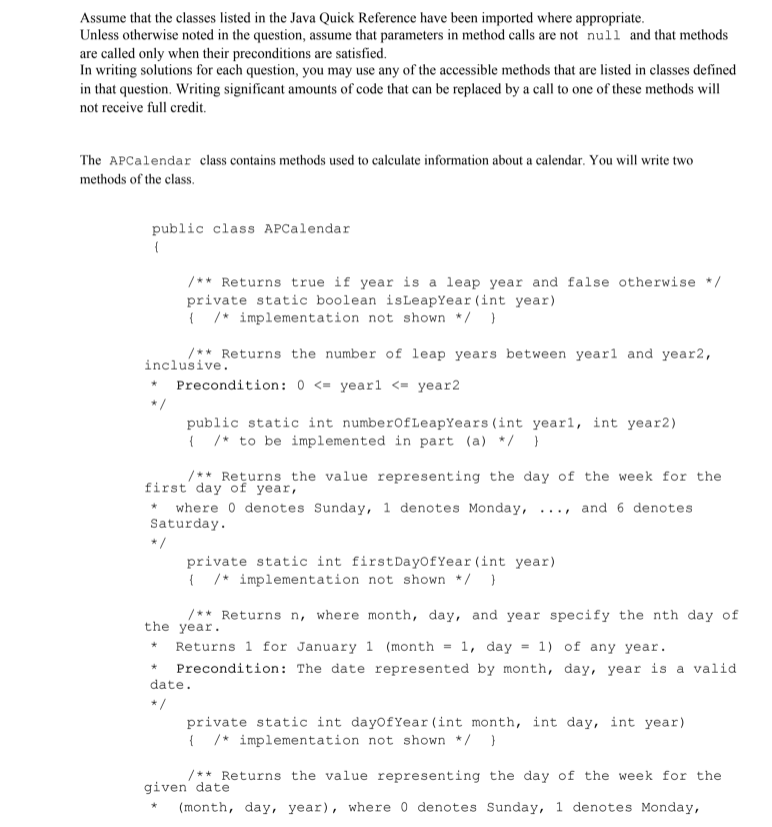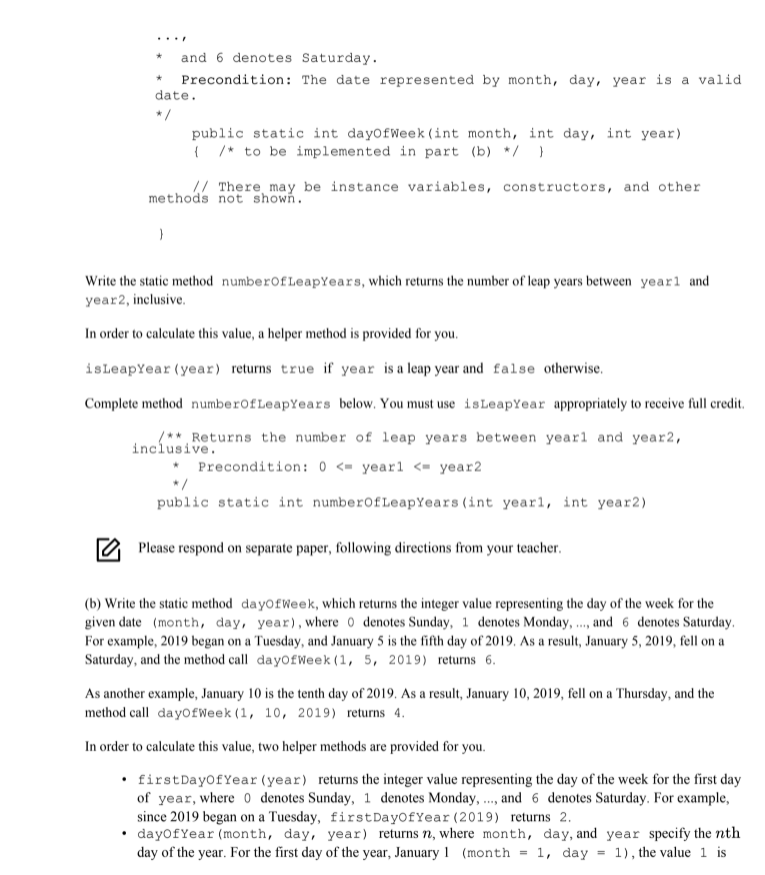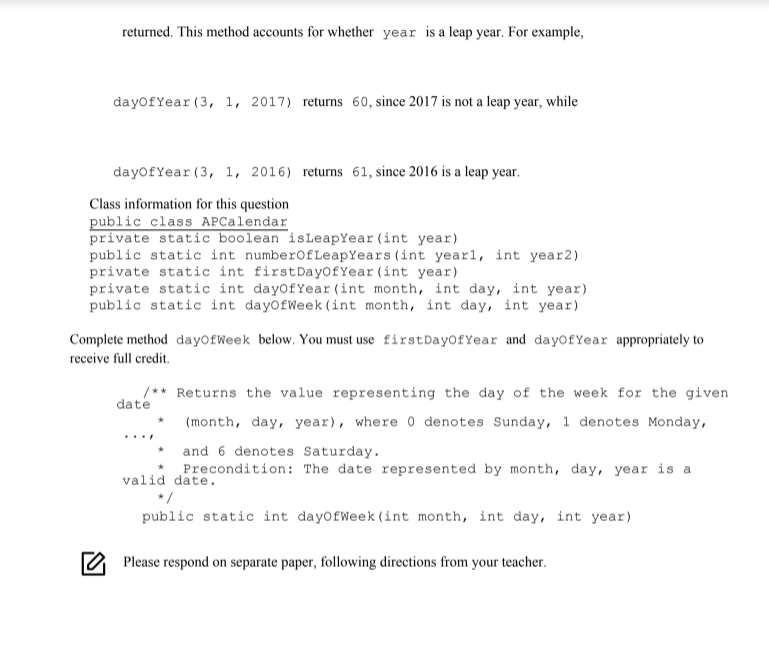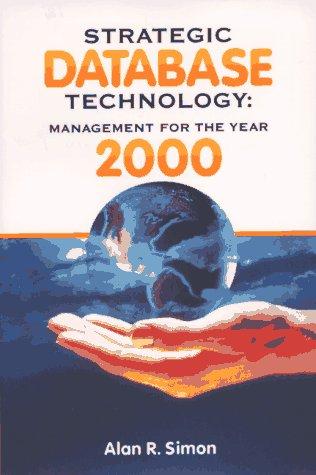Assume that the classes listed in the Java Quick Reference have been imported where appropriate. Unless otherwise noted in the question, assume that parameters in
Assume that the classes listed in the Java Quick Reference have been imported where appropriate. Unless otherwise noted in the question, assume that parameters in method calls are not null and that methods are called only when their preconditions are satisfied. In writing solutions for each question, you may use any of the accessible methods that are listed in classes defined in that question. Writing significant amounts of code that can be replaced by a call to one of these methods will not receive full credit.
The APCalendar class contains methods used to calculate information about a calendar. You will write two methods of the class.
(b) Write the static method dayOfWeek, which returns the integer value representing the day of the week for the given date (month, day, year), where 0 denotes Sunday, 1 denotes Monday, ..., and 6 denotes Saturday. For example, 2019 began on a Tuesday, and January 5 is the fifth day of 2019. As a result, January 5, 2019, fell on a Saturday, and the method call dayOfWeek(1, 5, 2019) returns 6. As another example, January 10 is the tenth day of 2019. As a result, January 10, 2019, fell on a Thursday, and the method call dayOfWeek(1, 10, 2019) returns 4.



Step by Step Solution
There are 3 Steps involved in it
Step: 1

See step-by-step solutions with expert insights and AI powered tools for academic success
Step: 2

Step: 3

Ace Your Homework with AI
Get the answers you need in no time with our AI-driven, step-by-step assistance
Get Started


